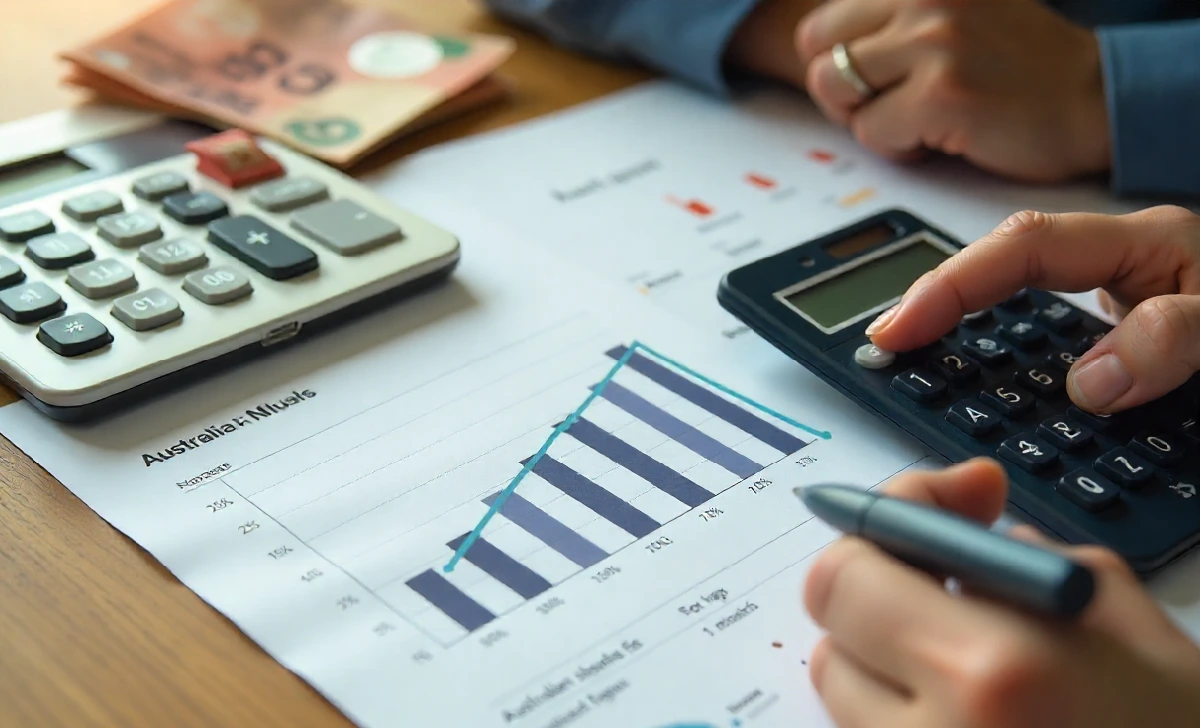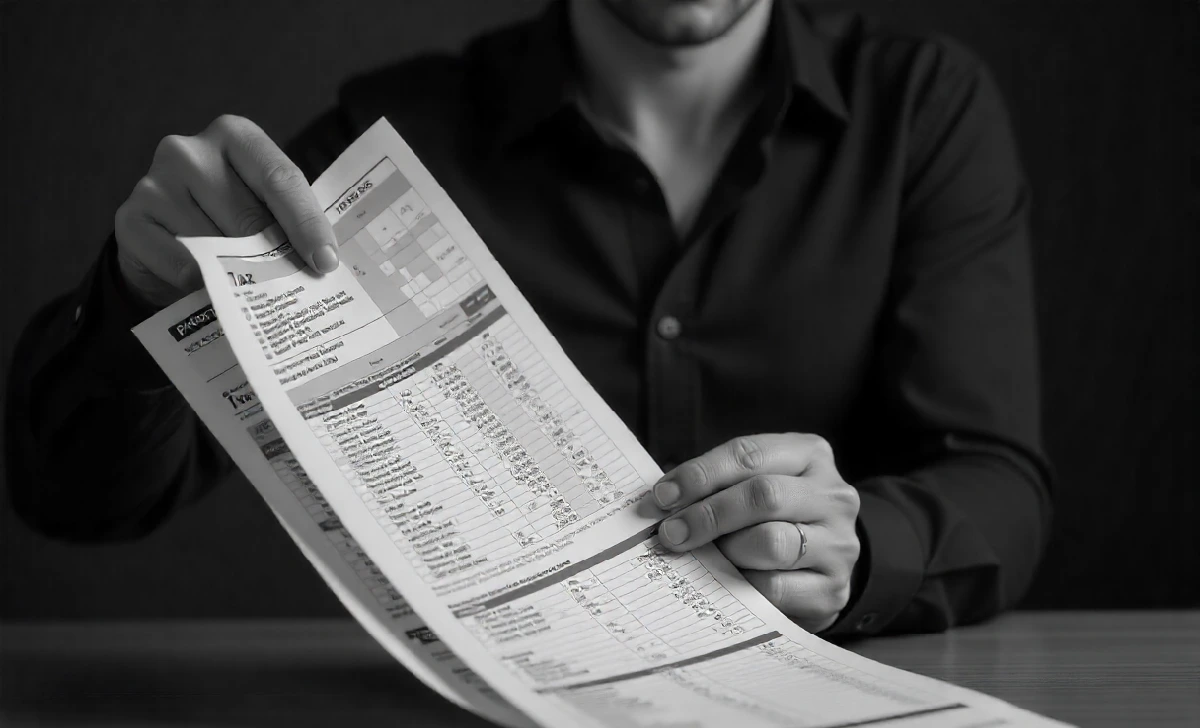Choosing between ETFs vs individual shares ranks among the most common dilemmas facing Australian investors today. You want your money to work harder, but picking the right investment path feels overwhelming when faced with thousands of options on the ASX.
The decision impacts your portfolio’s risk level, time commitment, and potential returns. Many investors jump straight into individual shares without understanding how ETFs could simplify their investment journey while potentially delivering better outcomes.
This guide breaks down the key differences in the ETFs vs individual shares debate, helping you make an informed choice that aligns with your investment goals and experience level.
Understanding ETFs and Individual Shares
What Are ETFs?
Exchange-Traded Funds (ETFs) bundle multiple securities into a single investment vehicle that trades on the stock exchange like individual shares. When you buy an ETF, you own a slice of every company or asset within that fund.
The Vanguard Australian Shares Index ETF (VAS) contains over 300 Australian companies. One purchase gives you exposure to Commonwealth Bank, BHP, CSL, and hundreds of other ASX-listed businesses without buying each share separately.

What Are Individual Shares?
Individual shares represent direct ownership in a specific company. You purchase shares directly from the stock exchange, becoming a partial owner with voting rights and direct exposure to that company’s performance.
Buying 100 Commonwealth Bank (CBA) shares means you own exactly that – 100 shares in Australia’s largest bank. Your investment success depends entirely on CBA’s performance.
Key Differences in ETFs vs Individual Shares
Diversification Benefits
ETFs provide instant diversification across multiple holdings. The iShares Core S&P 500 ETF (IVV) spreads your investment across 500 of America’s largest companies. One poor-performing stock won’t destroy your portfolio.
Individual shares concentrate risk in single companies. Buying shares in one mining company exposes you entirely to commodity price swings, management decisions, and industry-specific risks.
Time and Research Requirements
ETF investing requires minimal ongoing research. Fund managers handle the selection and rebalancing process. You choose broad market exposure without analysing individual company financials.
Individual share investing demands a substantial time commitment. You must research company reports, understand industry trends, monitor quarterly results, and make buy/sell decisions for each holding.
Cost Considerations
ETFs charge management fees typically ranging from 0.04% to 0.75% annually in Australia. The SPDR S&P/ASX 200 ETF (STW) charges 0.13% per year, meaning a $10,000 investment costs $13 annually in fees.
Individual shares involve brokerage fees per transaction but no ongoing management costs. Trading frequently increases total costs through repeated brokerage charges.

Advantages of ETF Investing
Professional Management and Rebalancing
ETF providers handle portfolio construction and maintenance. When companies enter or leave indices, fund managers adjust holdings automatically. You benefit from professional oversight without active involvement.
Index ETFs like VAS automatically adjust when new companies join the ASX 200 or existing ones get removed, maintaining optimal market representation.
Lower Investment Minimums
ETFs allow fractional exposure to expensive shares. The NASDAQ 100 ETF (NDQ) provides access to Apple, Microsoft, and other high-priced American tech stocks for under $50 per unit.
Direct investment in these individual stocks would require thousands of dollars per company to build meaningful positions.
Broad Market Exposure
Single ETF purchases can provide exposure to entire markets, sectors, or investment themes. The Vanguard MSCI Index International Shares ETF (VGS) covers over 1,500 companies across developed markets worldwide.
Building equivalent diversification through individual shares would require purchasing hundreds of different stocks across multiple exchanges.
Advantages of Individual Share Investing
Direct Control and Ownership
Individual shares provide complete control over investment decisions. You choose exactly which companies to own, when to buy or sell, and how much to allocate to each position.
Owning BHP shares directly means receiving dividends and voting rights specific to that company, plus the ability to time your transactions based on personal analysis.
Potential for Higher Returns
Skilled stock pickers can outperform broad market indices by identifying undervalued companies before the market recognises their potential. Afterpay shareholders who bought early saw massive returns before the company’s acquisition.
ETFs deliver market-average returns by design. You won’t beat the market significantly through ETF investing alone.
Tax Benefits Through Franking Credits
Australian individual shares often provide franking credits that reduce your tax liability. Companies like Telstra and the big four banks regularly pay fully franked dividends.
ETFs may distribute franking credits, but the benefit gets diluted across all holdings. Direct share ownership maximises your franking credit advantage.

When to Choose ETFs
Beginning Investors
ETFs suit investors with limited market knowledge or time for research. You gain market exposure without needing to analyse individual companies or time market movements.
Starting with broad market ETFs like A200 or VAS provides solid foundation knowledge while building wealth steadily.
Busy Professionals
Time-poor investors benefit from ETF simplicity. Set up automatic investments into diversified ETFs and focus on your career while your portfolio grows passively.
Monthly investments of $500 into VGS provide global diversification without any ongoing research requirements.
Risk-Averse Investors
ETFs reduce single-company risk through diversification. Market downturns affect your entire portfolio less severely than individual share disasters.
The 2008 financial crisis destroyed some individual companies completely, while diversified ETFs recovered their losses within several years.
When to Choose Individual Shares
Experienced Investors
Knowledgeable investors who understand financial analysis can potentially beat market returns through careful stock selection.
Warren Buffett built wealth through individual share picking, though he now recommends index funds for most investors.
High Conviction Strategies
Strong beliefs about specific companies or sectors justify concentrated positions in individual shares.
Tesla believers who bought shares in 2019 saw extraordinary returns despite high volatility and risk.
Income-Focused Investors
Australian dividend-paying shares like banks, REITs, and utilities can provide higher income yields than broad market ETFs.
Westpac and ANZ have historically paid dividend yields above 5%, attractive for retirees seeking income.
Building a Balanced Approach
Core-Satellite Strategy
Many Australian investors combine both approaches. Use ETFs as your core portfolio foundation (70-80% of holdings) and individual shares as satellites (20-30%) for higher conviction plays.
Your core might include VAS for Australian exposure and VGS for international diversification, with satellites in specific companies you understand well.
Dollar-Cost Averaging
Regular ETF investments through dollar-cost averaging smooth out market volatility. Invest fixed amounts monthly regardless of market conditions.
Setting up automatic $300 monthly investments into ETFs removes emotional decision-making from your investment process.
Making Your Decision
The ETFs vs individual shares choice depends on your experience, time availability, and risk tolerance. Most Australian investors benefit from starting with ETFs before gradually adding individual shares as knowledge grows.
ETFs provide professional management, diversification, and simplicity. Individual shares offer control, potential outperformance, and direct ownership benefits. Your optimal approach might combine both strategies.
Consider your investment timeline, knowledge level, and available time before deciding. Both options can build long-term wealth when chosen thoughtfully and held patiently.
Ready to start investing? Open a brokerage account with a reputable Australian broker and begin with small amounts while you learn. What questions do you have about choosing between ETFs and individual shares for your portfolio?






